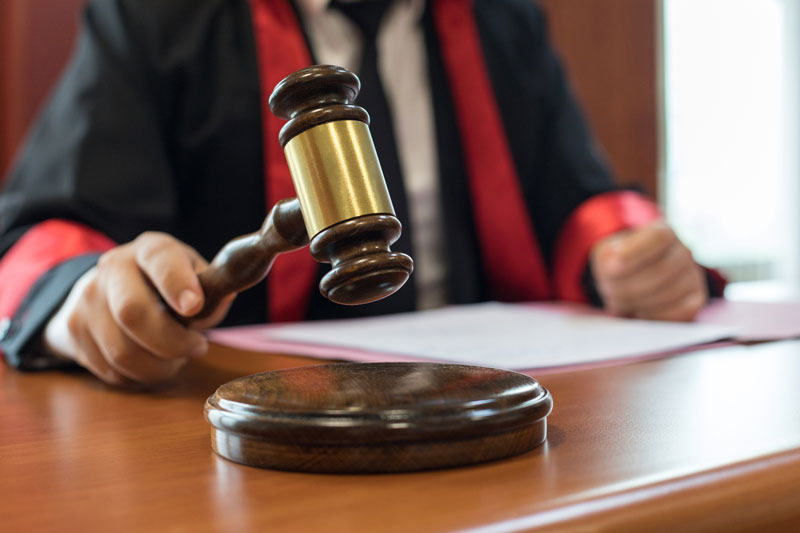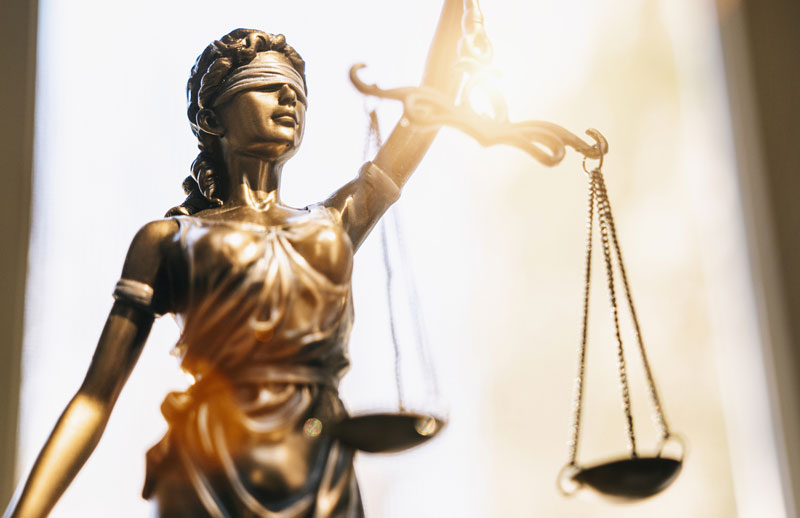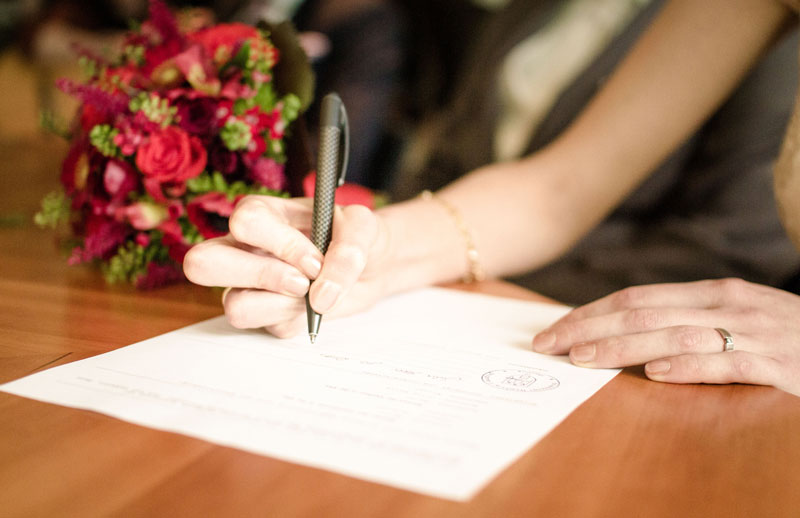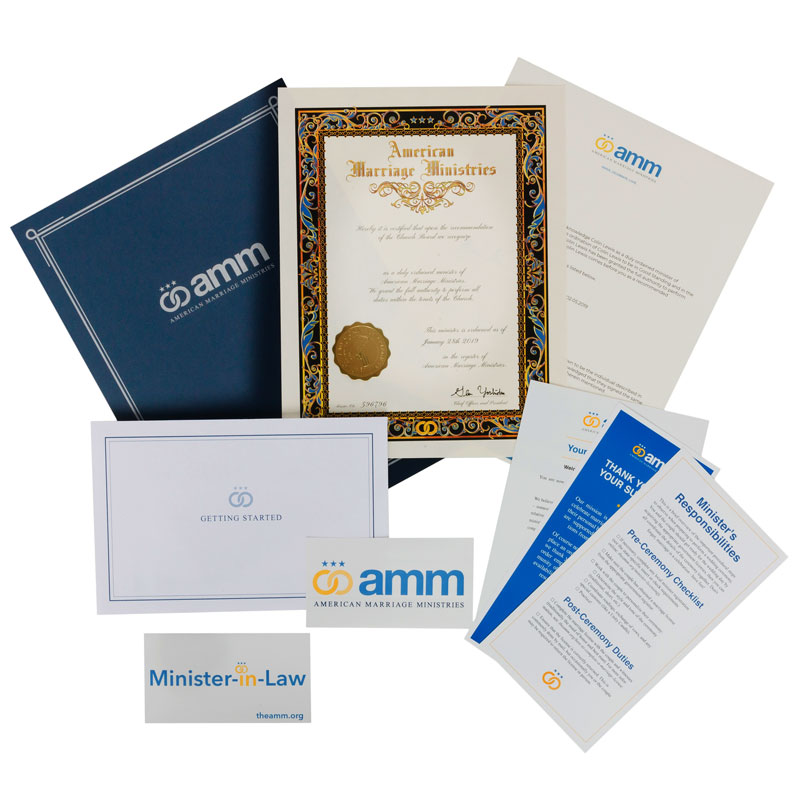Become a New Jersey Wedding Officiant with ourFree Online Ordination
If you are considering getting ordained online to officiate weddings in New Jersey, then you have come to the right place. The first thing you should know is that it is 100% legal for you to get ordained online in New Jersey to officiate weddings. Keep reading to learn more about why online ordinations are legal in New Jersey and how you can get ordained to officiate weddings anywhere in the State.
5 New Jersey Online Ordination Facts
Who can perform marriage in New Jersey?
” Each judge of the United States Court of Appeals for the Third Circuit, each judge of a federal district court, United States magistrate, judge of a municipal court, judge of the Superior Court, judge of a tax court, retired judge of the Superior Court or Tax Court, or judge of the Superior Court or Tax Court, the former County Court, the former County Juvenile and Domestic Relations Court, or the former County District Court who has resigned in good standing, surrogate of any county, county clerk and any mayor or the deputy mayor when authorized by the mayor, or chairman of any township committee or village president of this State, and every minister of every religion, are hereby authorized to solemnize marriages or civil unions between such persons as may lawfully enter into the matrimonial relation or civil union; and every religious society, institution or organization in this State may join together in marriage or civil union such persons according to the rules and customs of the society, institution or organization. ”
New Jersey Permanent Statutes § 37:1-13
Does the New Jersey government recognize online ordained ministers?
Yes. As clearly stated in the State Law, ministers that were ordained online are no different than ministers ordained by any other means, be it in-person, or through years of seminary study. Ordained means ordained. Period. Get Ordained Now
Are wedding officiants required to register with the New Jersey Government?
This may come as a surprise to you, but wedding officiants in New Jersey do not have to register with any government office before or after officiating wedding ceremonies. There are no laws in New Jersey requiring that officiants register with any government office and there is no government office charged with such a responsibility.
What New Jersey government office must the officiant contact before performing marriage?
None. The New Jersey government does not have any office that registers, certifies, or licenses wedding officiants. Simply put, at no point in your journey from ordination to officiating are you required to contact or register with any New Jersey government office.
What is the minimum age allowed for a wedding officiant in New Jersey?
In New Jersey all wedding officiants must be at least 18 years old to be able to legally solemnize marriage. Basically, in addition to being an ordained minister, you must also be a legal adult.
How Are New Jersey Online Ordinations Legal?

To better understand the legal underpinnings of how online ordinations work in relation to gaining the authority to officiate weddings in New Jersey, it is helpful to familiarize yourself with an esoteric legal term, “Solemnization of Marriage”. Solemnization of Marriage is simply a fancy way of saying, “Perform Marriage”, “Conduct a Wedding”, or “Officiate a Wedding”. Solemnize is the official act of conducting a wedding ceremony. This is how the act of performing a wedding ceremony is described in the New Jersey Permanent Statutes. Below is the law that specifies who exactly can Solemnize Marriage in New Jersey:
New Jersey Permanent Statutes § 37:1-13
a. Authorization to solemnize marriages and civil unions. Each judge of the United States Court of Appeals for the Third Circuit, each judge of a federal district court, United States magistrate, judge of a municipal court, judge of the Superior Court, judge of the Tax Court, administrative law judge, retired judge of the Superior Court or Tax Court, retired administrative law judge, or judge of the Superior Court or Tax Court, the former County Court, the former County Juvenile and Domestic Relations Court, or the former County District Court who has resigned in good standing, surrogate of any county, county clerk, and any mayor or former mayor not currently serving on the municipal governing body or the deputy mayor when authorized by the mayor, or chairman of any township committee or village president of this State, every member of the clergy of every religion, and any civil celebrant who is certified by the Secretary of State to solemnize marriages or civil unions as set forth in subsection b. of this section, are hereby authorized to solemnize marriages or civil unions between such persons as may lawfully enter into the matrimonial relation or civil union; and every religious society, institution or organization in this State may join together in marriage or civil union such persons according to the rules and customs of the society, institution or organization. b. A civil celebrant shall be authorized to solemnize marriages or civil unions if certified to do so by the Secretary of State. (1) A civil celebrant shall receive a certification from the Secretary of State to solemnize marriages or civil unions if the celebrant: (a) is at least 18 years of age and has graduated from a secondary school in this State or another state; (b) has completed a civil celebrant course offered by a non-denominational or educational charitable organization that is registered with the State under the “Charitable Registration and Investigation Act,” P.L.1994, c.16 (C.45:17A-18 et seq.), and which course: (i) includes classes that meet weekly or with more frequency, either administered in person or by other means, over a period of not less than six months; and (ii) educates on topics including, but not limited to, celebrant philosophy and history, ceremonial structure, and ceremonial presentations; and (c) (i) submits a completed application form, developed by the secretary pursuant to regulation, which includes the name and address of the celebrant-applicant along with any other relevant information on the celebrant-applicant required by the secretary, and supporting documentation with respect to all certification requirements set forth in this subsection; and (ii) pays to the Department of State, at the time of submitting the completed application, a fee of not less than $50 or more than $75, as determined by the secretary by regulation, to cover costs for processing applications, producing and issuing certificates, and maintaining records on applications and certificates issued or denied. (2) (a) A celebrant-applicant shall not be authorized to solemnize marriages or civil unions until the application for certification is approved and the certificate received from the secretary. (b) A civil celebrant who has received a certification from the secretary may have that certification revoked, through a hearing before an administrative law judge, if the secretary determines that any information provided in the celebrant’s application was inaccurate or otherwise did not comply with the certification requirements set forth in this subsection. A civil celebrant subject to a revocation hearing before an administrative law judge or any appeal thereof shall not be authorized to solemnize marriages or civil unions, and shall only again be authorized to do so if a final determination is made permitting the civil celebrant to retain the certification.
New Jersey Permanent Statutes § 37:1-13 Explained
If this law looks like an indecipherable wall of text, don’t worry. Let’s focus in on the part that is relevant to you.
“a. Authorization to solemnize marriages… every member of the clergy of every religion…”
This law allows for people of any religious faith to self actualize their ability to officiate wedding ceremonies. Beyond being articulated in the New Jersey Permanent Statutes, this right is also enshrined in the 1st amendment of the US Constitution:
“Congress shall make no law respecting an establishment of religion, or prohibiting the free exercise thereof; or abridging the freedom of speech, or of the press; or the right of the people peaceably to assemble, and to petition the Government for a redress of grievances.”
We hope this better explains the legal foundation for why you absolutely have the right to officiate wedding ceremonies in New Jersey as an online ordained minister. As long as you are a member of any religious institution that grants you the authority to solemnize marriage, you are good to go. So what are you waiting for?
New Jersey Officiant Government Registration

We said it before but it bears repeating – In New Jersey, wedding officiants are not required to register with any government office. The government in New Jersey does not impose any officiant registration process whatsoever. At no point in your journey from getting ordained to officiating the wedding ceremony are you required to complete government paperwork confirming your status as a wedding officiant. Once you are an online ordained minister you instantly have the legal ability to perform marriage anywhere in New Jersey.
Though there is no legal requirement to prove your standing as an Ordained Minister with any New Jersey government office, we do recommend that you keep personal records of your official Ministry Credentials. A physical copy of your Ordination Certification is useful to have in the event that the couple or anyone else affiliated with the wedding asks to see proof of your ordination.
If you choose to get ordained with American Marriage Ministries, consider ordering one of the following packages. In addition to your official ordination certificate you will also receive your “AMM Minister’s Manual” and “Asked To Officiate“. Both of these books cover all of the important information you need to know regarding your legal duties as a wedding officiant and your ceremonial responsibilities, including how to best prepare for the ceremony.
How Do I Prepare For Officiating Weddings in New Jersey?

Getting ordained is just the first step. The bulk of your time and energy will be taken up in preparing for the wedding ceremony. We know that conducting a wedding ceremony is a big responsibility. And though it is a joyous experience it is also one that needs to be taken very seriously, especially for your role as the wedding officiant.
We will walk you through the process from both the legal and ceremonial aspects of your role as the wedding officiant. Check out our page How To Officiate Weddings to get started. Here we cover the important things that you as the officiant need to do, such as how to best prepare for officiating a wedding ceremony and Writing the Wedding Ceremony. For more information, we encourage you to visit the official American Marriage Ministries website. There you will find the most comprehensive officiant training materials you can find online.
Many of the people that get ordained online have never officiated a wedding before. We know that this can seem intimidating and have anticipated your need to understand the entire process. Our mission is to empower you not just to officiate weddings, but to do so with skill, confidence, and dare we say, a bit of style.
Officiating a wedding in New Jersey can be broken down into two responsibilities. These are:
- Non-Legal Duty – Officiating the Wedding Ceremony
- Legal Duty – Signing the Marriage License
To learn more about preparing for the wedding ceremony, including how to write a wedding ceremony script, check out the Officiant Training on the American Marriage Ministries website. Keep reading to learn more about the officiant’s legal responsibilities regarding the marriage license.
New Jersey Wedding Officiant Legal Responsibilities

Your one legal responsibility as a wedding officiant in New Jersey is to sign the marriage license for the couple. This is a simple bureaucratic process that is really no different than signing any other type of legal contract.
However since it is not every day that you fill out marriage licenses, you may find some of the fields confusing at first glance. We have deconstructed the process of completing a marriage license into easy-to-follow instructions in case you find something confusing along the way. We understand how important it is to get this right, so keep reading for instructions on how to complete an New Jersey marriage license.
How To Fill Out an New Jersey Marriage License
It is your responsibility as the wedding officiant to sign the marriage license on the wedding day. We have broken this duty down into four simple steps:
- Ask the couple to present their marriage license.
- Confirm that the marriage license is valid.
- Complete and sign the marriage license.
- Return the Marriage License.
STEP 1 – ASK THE COUPLE TO PRESENT THEIR MARRIAGE LICENSE
At some point on the wedding day, you need to ask the couple to present their marriage license. Generally this happens immediately following the ceremony while everyone heads out to the reception. Though this doesn’t have to be the case, as the marriage license can be completed at any time on the wedding day before or after the ceremony.
STEP 2 – CONFIRM THAT THE MARRIAGE LICENSE IS VALID
Before you start filling out the marriage license you need to confirm that it is currently valid. A marriage license’s validity is determined by three laws that specify the marriage license waiting period, expiration, and return. If you need further clarification on what these terms mean, there is a good explanation here. The information below outlines the waiting period, expiration, and return for New Jersey marriage licenses:
- REQUIRED WITNESSES: One Adult
- WAITING PERIOD: 3 Days To Receive
- EXPIRATION: 30 Days
- RETURN: Within 5 Days after the Wedding
In practice, verifying the validity of the marriage license is usually a formality. Most couples file for their marriage license a week or two before the ceremony date, in which case the marriage license, according to state law, is valid.
STEP 3 – COMPLETE AND SIGN THE MARRIAGE LICENSE
This is where the pen finally meets the paper. As the officiant you need to fill out your portion of the marriage license. When done, you must sign it with the couple and two adult witnesses (they are also required to sign the marriage license).
If you are not sure how to fill out certain fields on the marriage license, do not worry. Below are the most common questions people have regarding filling out a marriage license. The marriage license you will be completing may not have all of these fields.
OFFICIANT TITLE ON MARRIAGE LICENSE
For officiant title, enter“Minister”. If you are an AMM ordained minister, then that is what you put for your title.
CHURCH NAME ON MARRIAGE LICENSE
For church name, enter“American Marriage Ministries”. That is unless, you got ordained through a different organization, in which case enter the name of that organization.
RELIGIOUS DENOMINATION ON MARRIAGE LICENSE
For religious denomination, enter “Non-Denominational” unless you are officiating the wedding according to a specific religious tradition. If so, then enter that.
CEREMONY TYPE ON MARRIAGE LICENSE
For ceremony type, enter “Religious”. It is important to understand, even if you officiated a completely non-religious ceremony you still need to enter “Religious”. The reason for this is that the designation “Religious” and “Civil” mean something different to the New Jersey Government. Civil is a designation for government officials. Everything else is considered religious, even if you invoke no religious references in your wedding ceremony.
STEP 4 – RETURN THE MARRIAGE LICENSE
After the marriage license is completed it must be returned to its issuance office. This is usually the responsibility of the couple though it is a good practice as the officiant to follow-up with the couple to make sure that the completed marriage license has been returned. As this is generally done through the mail, it is an easy thing to do and we recommend that it be done ASAP after the wedding.
If you are unclear on where or how to return the marriage license, the couple should know. When the couple receives their marriage license they also receive specific instructions on how to return the marriage license. If these instructions are not included with the marriage license, you can call the issuance office or visit their website for further clarification.
Thanks for reading and go get your officiating on! To learn more about getting ordained online and how to officiate weddings, check out American Marriage Ministries.





